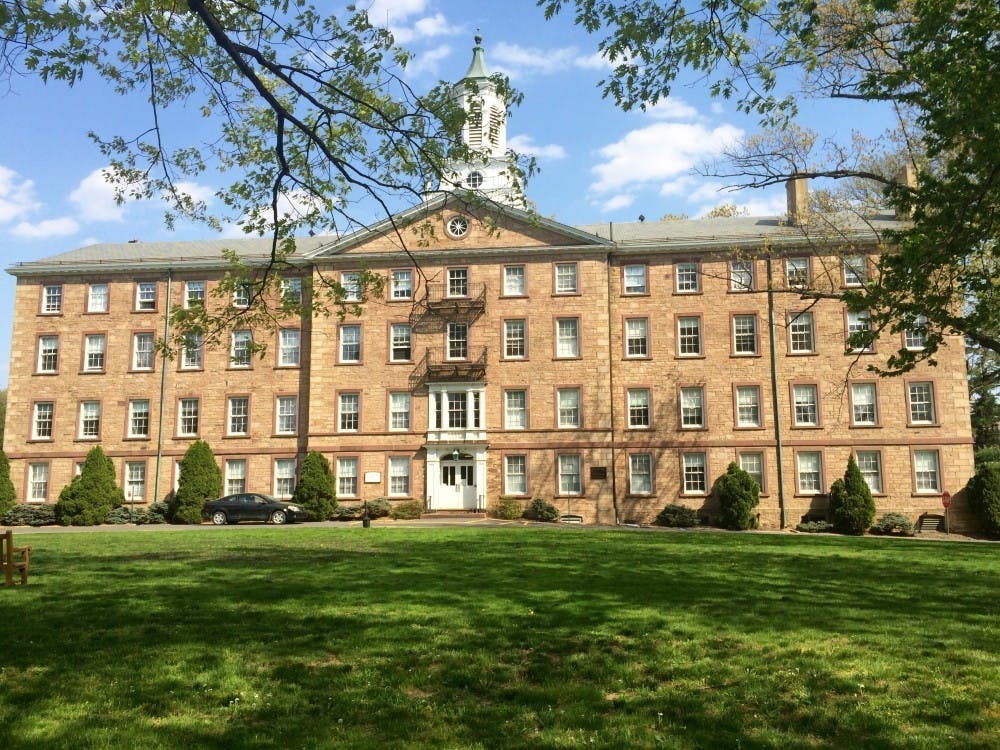Last year, Princeton Theological Seminary (PTS) committed $28 million to pay reparations for its complicity in the institutions of American slavery. PTS’ steps include offering scholarships, fellowships, and resources to the descendants of those affected by its actions, as well as inhabitants of West African nations impacted by the slave trade.
Our own university should follow suit with an even bigger commitment. While others have proposed the idea of reparations in this paper, the Seminary’s recent decision gives new context — and urgency — to the issue.
Now that Princeton has a model for reparations, reparations must be one of the University’s main initiatives.
I’m not going to argue for reparations in general. We are beyond that; the University knows why dealing with its past is a worthwhile and just cause (as evidenced by the Princeton and Slavery Project). And now is as good a time as any to do so.
PTS shares more than a town with the University; it shares a community. Students at the Seminary can take one class per semester here, with full access to our libraries. We share knowledge, resources, and a troubling historical connection to slavery. While both the University and PTS have acknowledged this disturbing past, the University has yet to take substantive action.
Furthermore, PTS has an endowment of just under $1 billion. In comparison, the University’s is upwards of $26 billion. As PTS goes through with its reparations plan and sets aside almost 3 percent of its endowment, this gives the University a chance to implement something similar, but at a larger scale.
If a similar percentage were taken out of the University’s endowment, that would mean $780 million dedicated to reparations. We would then have a truly meaningful fund of reparations, at only a fraction of our total endowment. This should happen, and this should happen now.
The University prides itself with leveraging one of the largest endowments in the country — and the political power it carries — to the benefit of its students. What is keeping them from implementing a plan for reparations?

The University has taken steps to enact real change for just causes in other arenas. Princeton’s financial aid is among the best in the country, and most students graduated with no debt, because of Princeton’s ability to generously disburse grants and other aid. The University has been at the forefront of supporting DACA, which has been under attack from the current presidential administration.
In a similar fashion, the administration can take a step towards implementing effective policies to help enrich its students and overall improve the University. Princeton owned up to its past with the Princeton and Slavery project. While acknowledging this past, the University should make an effort to help those directly affected by it.
Reparations are the next logical step in the evolution of the University’s reputation of supporting initiatives that promote economic and racial justice. Princeton can once again be a leader of an important initiative by not only being one of the first to implement a plan for reparations, but also by making such a big contribution in the form of almost a billion dollars.
With the case for reparations being talked about around the country now more than ever, the University can actually call itself a leader in acknowledging the past and dedicating resources toward reaching racial equality and equity, not only on college campuses, but also for institutions in the country as a whole. Georgetown University’s students have already started an initiative for reparations, though their plan raises less than $500,000 towards the cause and is funded by an increase in tuition.

Princeton can set a precedent for other universities by diverting a portion of its endowment towards reparations. On top of simply being the right thing to do, Princeton can show that the institution not only speaks about trying to change, but is actually taking steps in that direction. Reparations would be a true call in the nation’s service and the service of humanity.
Elijah Benson is a sophomore from Newark, N.J. He can be reached at ebenson@princeton.edu.








